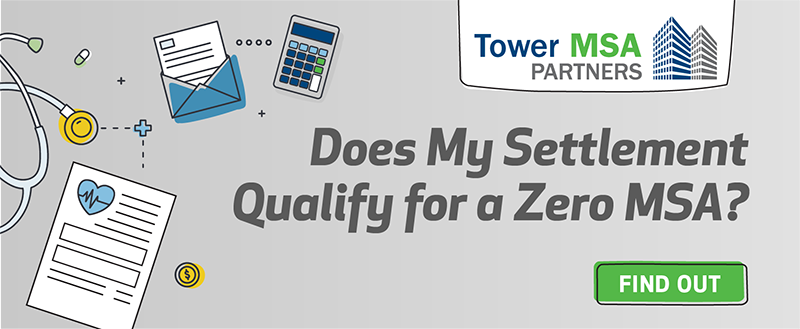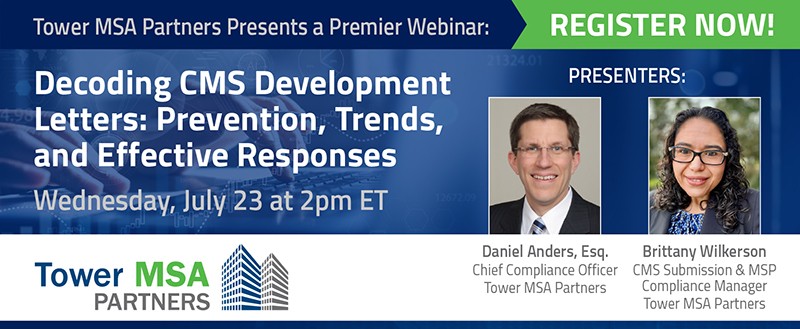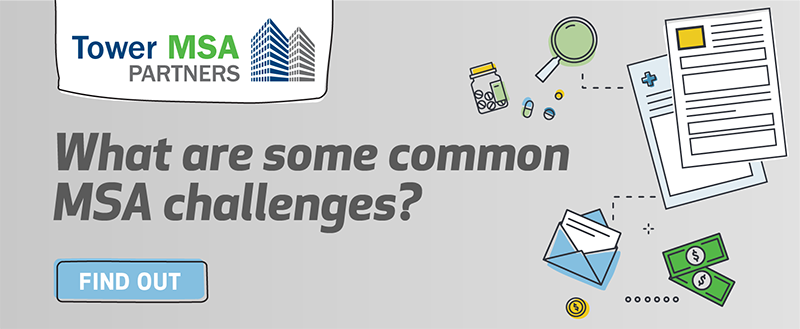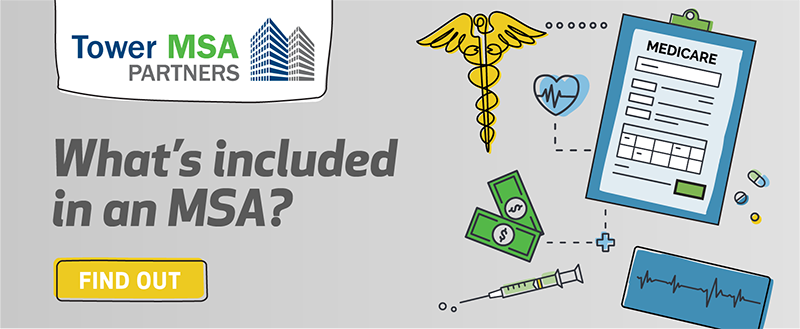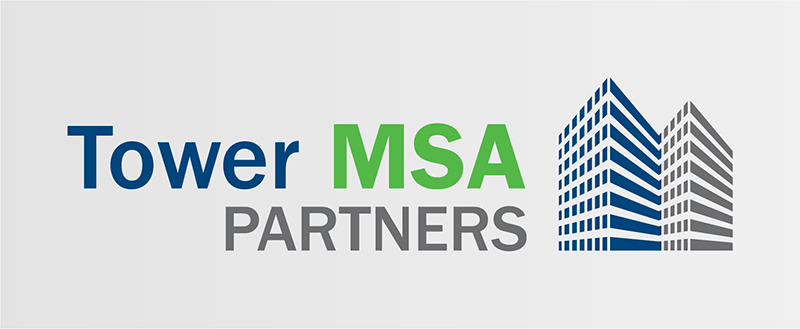Fifth Installment in our Tower MSA Partners Series
Avoiding the Pitfalls That Can Derail Settlement Success
When it comes to resolving workers’ compensation claims involving future medical exposure, Medicare Set-Asides (MSAs) are a critical component, but they’re not without challenges. Whether you’re preparing an MSA for submission to the Centers for Medicare & Medicaid Services (CMS) or managing one post-settlement, there are several recurring pain points that can complicate and delay the settlement process. In this post, we explore the most common MSA challenges and share strategies to address them proactively.
CMS Development Requests
Perhaps the most frustrating challenge for claims professionals is when an MSA submitted to CMS results in a request for additional information. Common reasons include:
- Missing or outdated medical records
- Clarification of accepted and denied body parts and conditions
- DME records not provided
- Need for personal prescription history
Each delay may add weeks, even months, to the settlement timeline. Working with a partner that understands CMS submission requirements inside and out, and stays ahead of guideline changes, can minimize these setbacks.
At Tower MSA Partners, our Physician Follow-up service is key to development letter avoidance. At no cost to our client partners, Tower will contact the treating physician to confirm matters such as the last date of service and ongoing treatment and medications. By doing so, we ensure documentation is complete, consistent, and aligned with CMS’s expectations before submission.
Overfunded MSAs Due to Inaccurate Cost Projections
Another issue is inflated MSAs, which can stall settlements or make them financially unworkable. MSAs are meant to reflect reasonable and necessary future medical costs, but they can become overfunded when:
- Treating physicians list aggressive or non-evidence-based treatment plans
- High-cost medications are projected indefinitely, even if alternatives exist
- Outdated surgical recommendations are included
- Medicare pricing is not properly applied, or generic equivalents are overlooked
To avoid this, the MSA projection must go hand-in-hand with medical intervention. That includes communicating with providers to clarify treatment intent, securing appropriate clarifications, and exploring the use of evidence-based guidelines. Tower’s clinical team excels in this area, often reducing MSA costs significantly through strategic interventions and updated treatment plans.
Navigating the Gray Areas of Compliance
MSAs are meant to protect Medicare’s interests, but interpretation of compliance can vary. For example:
Navigating these gray areas requires expertise in CMS’s evolving guidelines, as well as a solid understanding of case law and best practices. Missteps, such as underfunding or improper spending, can leave all parties exposed to future liability.
Tower MSA helps payers and attorneys make informed, case-by-case decisions on whether submission is warranted, whether re-review is advantageous, and if a $0 MSA is feasible.
Timing and Settlement Coordination
MSAs don’t exist in a vacuum. Delays in obtaining MSA approvals can impact the broader settlement process, especially when dealing with multi-party negotiations, liens, or Social Security Disability applications. If the MSA process isn’t started early enough or coordinated with other settlement activities, it becomes a bottleneck.
That’s why early intervention is key. At Tower, we help claims professionals identify MSA candidates early in the claim lifecycle and integrate MSA timelines into the overall resolution strategy.
Legacy Claims and “Old Dogs”
Some of the most complex challenges come from aging claims, especially those with inconsistent treatment history, outdated care plans, or decades-old documentation. These “old dog” claims often present inaccurate MSAs or complex settlement dynamics.
In these cases, seeking an Amended Review (where CMS previously approved an MSA on the claim) or engaging Tower’s clinical team to reassess and clarify treatment plans can be game-changing. We’ve helped clients reduce legacy claim MSAs by hundreds of thousands of dollars through re-review, updated records, and provider outreach.
Proactive Partnership = Smoother Settlements
Ultimately, many MSA challenges stem from incomplete documentation, lack of clarity, or missed opportunities for cost mitigation. A proactive, strategic approach, combined with deep CMS expertise, can resolve these challenges before they become roadblocks.
Tower MSA Partners doesn’t just provide MSA compliance, we provide settlement support that moves claims forward. From early identification and medical cost mitigation to CMS submission, we ensure your MSAs support, not stall, your claim closure goals.
Stay tuned for our next article in the series, “Self vs. Professional MSA Administration: Which Is Right for the Injured Worker?”

